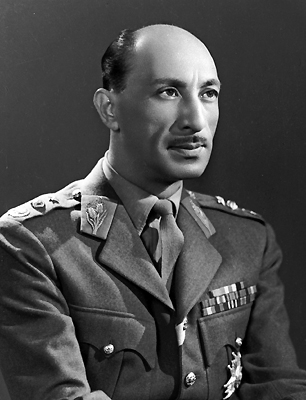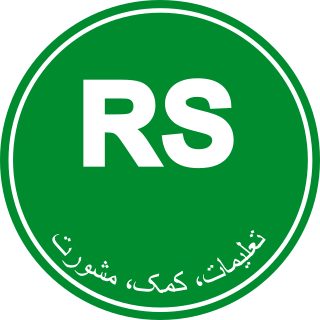
Afghanistan, officially the Islamic Emirate of Afghanistan, is a landlocked country located at the crossroads of Central Asia and South Asia. It is bordered by Pakistan to the east and south, Iran to the west, Turkmenistan to the northwest, Uzbekistan to the north, Tajikistan to the northeast, and China to the northeast and east. Occupying 652,864 square kilometers (252,072 sq mi) of land, the country is predominantly mountainous with plains in the north and the southwest, which are separated by the Hindu Kush mountain range. Kabul is the country's capital and largest city. Afghanistan's population is about 35 million.

The economy of Afghanistan is listed as the 124th largest in the world in terms of nominal gross domestic product (GDP), and 102nd largest in the world in terms of purchasing power parity (PPP). With a population of around 41 million people, Afghanistan's GDP (nominal) stands at $14.58 billion as of 2021, amounting to a GDP per capita of $363.7. Its annual exports exceed $2 billion, with agricultural, mineral and textile products accounting for 94% of total exports. The nation's total external debt is $1.4 billion as of 2022.

Kabul is the capital city of Afghanistan. Located in the eastern half of the country, it is also a municipality, forming part of the Kabul Province. The city is divided for administration into 22 municipal districts. In 2025 its population is estimated to be 6.74 million people. In contemporary times, Kabul has served as Afghanistan's political, cultural and economical center. Rapid urbanisation has made it the country's primate city and the 76th-largest city in the world.

Mohammad Zahir Shah was the last King of Afghanistan, reigning from 8 November 1933 until he was deposed on 17 July 1973. Ruling for 40 years, Zahir Shah was the longest-serving ruler of Afghanistan since the foundation of the Durrani Empire in the 18th century.

The Taliban, which also refers to itself by its state name, the Islamic Emirate of Afghanistan, is an Afghan political and militant movement with an ideology comprising elements of Pashtun nationalism and the Deobandi movement of Islamic fundamentalism. It ruled approximately 75% of Afghanistan from 1996 to 2001, before it was overthrown by an American invasion after the September 11th attacks carried out by the Taliban's ally al-Qaeda. The Taliban recaptured Kabul in August 2021 following the departure of coalition forces, after 20 years of Taliban insurgency, and now controls the entire country. The Taliban government is not recognized by any country and has been internationally condemned for restricting human rights, including women's rights to work and have an education.

Mullah Muhammad Omar was an Afghan militant leader and cleric who founded the Taliban in 1994. During the Third Afghan Civil War, the Taliban fought the Northern Alliance and took control of most of the country, establishing the First Islamic Emirate for which Omar began to serve as Supreme Leader in 1996. Shortly after al-Qaeda carried out the September 11 attacks, the Taliban government was toppled by an American invasion of Afghanistan, prompting Omar to go into hiding. He successfully evaded capture by the American-led coalition before dying in 2013 from tuberculosis.

The Durand Line, also known as the Afghanistan–Pakistan border, is a 2,640-kilometre (1,640 mi) international border between Afghanistan and Pakistan in South Asia. The western end runs to the border with Iran and the eastern end to the border with China.

The national flag of the Islamic Emirate of Afghanistan, adopted on 15 August 2021 following the Taliban's victory in the 2001–2021 war, features a white field with a black Shahada inscribed. Since the 20th century, Afghanistan has changed its national flag several times. The national flag had black, red and green colors most of the time during the period.

Mohammad Ashraf Ghani Ahmadzai is an Afghan former politician, academic, and economist who served as the president of Afghanistan from September 2014 until August 2021, when his government was overthrown by the Taliban.

The Afghanistan men's national cricket team represents Afghanistan in men's international cricket. It is a full Member of the International Cricket Council (ICC) with Test, One-Day International (ODI) and T20 International (T20I) status.

A series of occasional armed skirmishes and firefights have occurred along the Afghanistan–Pakistan border between the Afghan Armed Forces and the Pakistan Armed Forces since 1949. The latest round of hostilities between the two countries began in April 2007. Militants belonging to Tehrik-i-Taliban Pakistan and Jamaat-ul-Ahrar also use Afghanistan's territory to target Pakistani security personnel deployed along the border. The Diplomat says that the presence of terrorists belonging to Tehrik-i-Taliban Pakistan on Taliban Afghanistan and Pakistan soil is the reason for sporadic shelling of Afghanistan's territory by Pakistani security forces.

Hamza bin Laden was a Saudi Arabian-born key member of al-Qaeda. He was a son of Osama bin Laden. On 14 September 2019, U.S. President Donald Trump announced that he was killed in a U.S. counterterrorism operation on the Afghanistan–Pakistan border. In 2024, unconfirmed media reports claimed that he was still alive and a senior leader of al-Qaeda.

The Pakistani Taliban, formally called the Tehreek-e-Taliban-e-Pakistan, is an umbrella organization of various Islamist armed militant groups operating along the Afghan–Pakistani border. Formed in 2007 by Baitullah Mehsud, its current leader is Noor Wali Mehsud, who has publicly pledged allegiance to the Afghan Taliban. The Pakistani Taliban share a common ideology with the Afghan Taliban and have assisted them in the 2001–2021 war, but the two groups have separate operation and command structures.

The War in Afghanistan was a prolonged conflict lasting from 2001 to 2021. It began with the invasion by a United States-led coalition under the name Operation Enduring Freedom as a direct response to the September 11 attacks, toppling the Taliban-ruled Islamic Emirate and establishing the Islamic Republic three years later. The Taliban and its allies were expelled from major population centers by US-led forces supporting the anti-Taliban Northern Alliance; Osama bin Laden, meanwhile, relocated to neighboring Pakistan. The conflict officially ended with the 2021 Taliban offensive, which overthrew the Islamic Republic, and re-established the Islamic Emirate. It was the longest war in the military history of the United States, surpassing the length of the Vietnam War (1955–1975) by approximately six months.

Resolute Support Mission (RSM) or Operation Resolute Support was a NATO-led multinational mission in Afghanistan. It began on 1 January 2015 as the successor to the International Security Assistance Force (ISAF), which was completed on 28 December 2014. Pursuant to United Nations Security Council Resolution 2189 of 2014, RSM was a noncombat mission aimed at advising and training Afghan security forces to provide long-term security to the country, under the aegis of the Security and Defence Cooperation Agreement BSA between the United States and Afghanistan, which was originally supposed to run from 1 January 2015 and "shall remain in force until the end of 2024 and beyond" unless terminated with two years' advance notice.

The Islamic State – Khorasan Province is a regional branch of the Salafi jihadist group Islamic State (IS) active in South-Central Asia, primarily Afghanistan and Pakistan. ISIS–K seeks to destabilize and replace current governments within the historic Khorasan region with the goal of establishing a caliphate across South and Central Asia, governed under a strict interpretation of Islamic sharia law, which they plan to expand beyond the region.

Rashid Khan Arman is an Afghan international cricketer and captain of the Afghanistan national team in the T20I format. In franchise leagues, he plays for Gujarat Titans in the Indian Premier League (IPL), Adelaide Strikers in Australia's Big Bash League (BBL), Lahore Qalandars in the Pakistan Super League (PSL), Band-e-Amir Dragons in Afghanistan's Shpageeza Cricket League and MI New York in Major League Cricket (MLC). He bowls right-arm leg spin and is an aggressive right-handed batsman.

Mullah Hibatullah Akhundzada, also spelled Haibatullah Akhunzada, is an Afghan cleric who is the supreme leader of Afghanistan in the internationally unrecognized Taliban regime. He has led the Taliban since 2016, and came to power with its victory over U.S.-backed forces in the 2001–2021 war. A highly reclusive figure, he has almost no digital footprint except for an unverified photograph and several audio recordings of speeches.
On 1 July 2019, a combined gun and bomb attack took place in the Wazir Akbar Khan neighborhood of Kabul, Afghanistan. The attackers initially detonated a bomb-laden truck, after which five gunmen entered a nearby building under construction and fired on Afghan security personnel evacuating people onto the street. At least forty-five were killed, including the five attackers. The spokesman for the Afghan Ministry of Public Health, Wahidullah Mayar, said that 116 civilians, including 26 children and 5 women, were wounded. The Taliban claimed the responsibility for the bomb attack in Kabul and said although civilians were not the Taliban target, some were injured.

The Islamic Republic of Afghanistan was a presidential republic in Afghanistan from 2004 to 2021. The state was established to replace the Afghan interim (2001–2002) and transitional (2002–2004) administrations, which were formed after the 2001 United States invasion of Afghanistan that had toppled the partially recognized Taliban-ruled Islamic Emirate of Afghanistan. However, on 15 August 2021, the country was recaptured by the Taliban, which marked the end of the 2001–2021 war, the longest war in US history. This led to the overthrow of the Islamic Republic, led by President Ashraf Ghani, and the reinstatement of the Islamic Emirate under the control of the Taliban. While the United Nations still recognizes the Islamic Republic as the legitimate government of Afghanistan, this toppled regime controls no portion of the country today, nor does it operate in exile; it effectively no longer exists. The Islamic Emirate is the de facto ruling government. The US–Taliban deal, signed on 29 February 2020 in Qatar, was one of the critical events that caused the collapse of the Afghan National Security Forces (ANSF). Following the deal, the US dramatically reduced the number of air attacks and deprived the ANSF of a critical edge in fighting the Taliban insurgency, leading to the Taliban takeover of Kabul.














